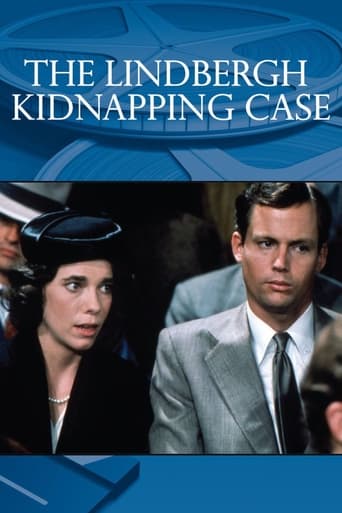


The Lindbergh Kidnapping Case
Fact-based story of the kidnapping of Charles Lindbergh Jr., son and namesake of the famed pilot, and ensuing trial of accused and convicted killer, Bruno Hauptmann.
-
- Cast:
- Cliff DeYoung , Anthony Hopkins , Sian Barbara Allen , Martin Balsam , Peter Donat , Dean Jagger , Laurence Luckinbill


Similar titles
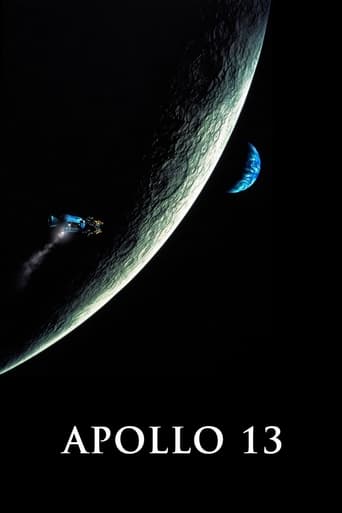



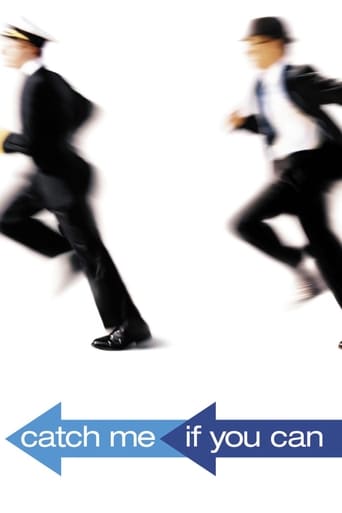


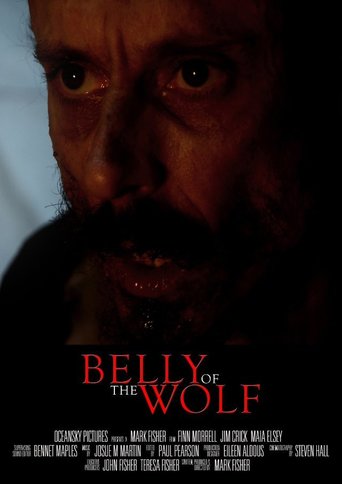
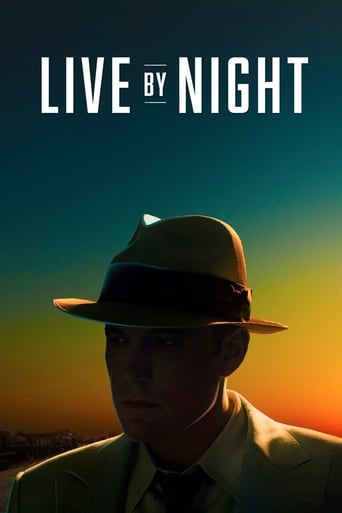
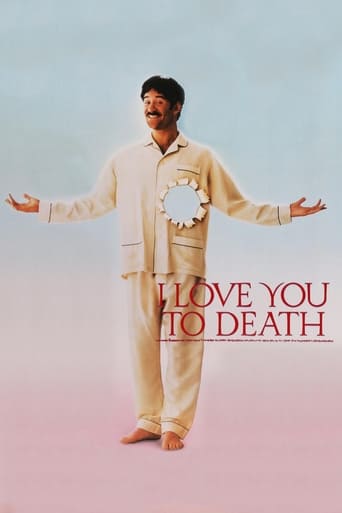
Reviews
I like movies that are aware of what they are selling... without [any] greater aspirations than to make people laugh and that's it.
The film makes a home in your brain and the only cure is to see it again.
It is neither dumb nor smart enough to be fun, and spends way too much time with its boring human characters.
Watching it is like watching the spectacle of a class clown at their best: you laugh at their jokes, instigate their defiance, and "ooooh" when they get in trouble.
Who kidnapped Charles Lindbergh Jr. in March 1932 from his home in Hopewell, New Jersey, and in kidnapping him apparently killed him, has never been totally settled. If it was, regular movies, or television movies like this one, or novels and plays and movies suggested by the story (like MURDER ON THE ORIENT EXPRESS), or serious new studies on the case every decade would not appear. In my own criminal history library I have at least three studies on it, and I do not own every one (another board commenter mentions Ludovic Kennedy's book, THE AIRMAN AND THE CARPENTER, which I don't have, nor do I have Anthony Scarduto's book from the 1970s - both are leading titles in the "Hauptman was framed/Hauptman was a fall guy" theories).My own opinion (for what it is worth) is that Hauptmann was involved. That does not make him the primary planner or agent in the crime. I would like to know more about others involved in the case, like Isidor Fisch (Hauptmann's mysterious roomer, who "left" the ransom money that was traced to Hauptmann - but it wasn't all of the ransom money, and most of that money has never been traced!). Or Oliver Whateley, the butler at the Lindbergh house, or Violet Sharpe, the servant who killed herself. Or Betty Gow. There are others I can think of, but whose names escape me.This movie basically stuck to the main outline of the events as are popularly known. Certain details that have since been revealed (the fact that Dr. Condon's telephone number was written on a wooden board in Hauptmann's ceiling by a reporter covering the story, for example), were not mentioned - I wonder if they would have been. But given it's flaws, it is a good film and makes some valid points for Hauptmann not getting a fair trial.One has to place his 1935 trial into proper context. In the 1930s the rules of criminal and civil procedure in most of the U.S. were still in the air. In 1932 the Supreme Court (in what was considered a surprising victory for liberalism at that time) overturned the death sentence convictions in the "Scottsboro" Rape trial in Alabama and ordered a new trial. The reason was lack of adequate representation for the African-Americna defendants. I say it was a surprising victory, in that the decision was not written by Justice Oliver Wendell Holmes, Louis Brandeis, or Benjamin Cardozo, or even Chief Justice Charles Evans Hughes, but by that highly revered spokesperson for "laissez faire" in government, George Sutherland, who was furious at the racially charged unfairness of the trial.Hauptmann could not claim racial bias (although one wonders if by 1935 his German ancestry may have made him less liked due to the Nazis and Hitler). But his counsel, Edward Reilly, was an elderly ladies man and alcoholic - once a good trial lawyer, but now a hack. Hauptmann got this attorney, apparently, by agreeing to publish a statement for the Hearst newspapers (Hearst hired Reilly). This was not unusual. The notorious conman, member of Parliament, and magazine editor Horatio Bottomley footed the bill for counsel for Dr. Hawley Crippen, in return for a final article from Crippen. The atmosphere of the trial was half-carnival/half-lynch mob. People bought "models" of the ladder that was used as souvenirs outside the courthouse.Hauptman is well played by Anthony Hopkins, who looks very much like the German carpenter. He really comes into his own in the second hour of the film. The first hour is dominated by Joseph Cotton as Dr. John Conlon, the school principal who willingly got involved in the kidnapping in the hope of getting the child of America's hero back. Cotton could see the humor in the self-important Conlon, such as in his declaration in court that he lives in the prettiest of the five boroughs of New York City: the Bronx (as though the New Jerseyans really care). Cliff De Young does well as Col. Lindbergh, trying to keep a level head in the dizzy investigation, but cruelly, silently, suffering from first not knowing where his son is, and then learning the truth. Martin Balsam does well as the hack Reilly. Dean Jagger, as wood expert Arthur Koehler, is treated unfairly, as a figure of confusion and boredom (most students of the case find Koehler's examination of the history of the ladder's wood one of the finest examples of expert testimony in court up to that time). Laurence Luckinbill portrays Hauptmann's last chance, New Jersey Governor Harold Hoffman, as a skeptical critic as the trial, who tries to give the convicted man more time for rational review of the evidence. In real life it ended Hoffman's political career (until a later appointment in the 1940s and 1950s handling pensions led to Hoffman committing massive embezzlement before he was caught and died).Certainly not the last word on the case, but certainly worth watching.
This is the sort of thing that TV does rather well sometimes, a more or less true story with competent (but either over-the-hill or just-beginning) performers, no expensive special effects, and time enough for attention to detail if not one thousand takes per shot.It's quite well done, a good example of the form. The cast is particularly good: Walter Pigeon as the somewhat biased judge, Martin Balsam as the raffish but sloppy defense counsel, David Spielberg as the waspy headline-grabbing prosecutor, Dean Jagger as an expert witness on carpentry, Cliff De Young as a cool, composed, remote Lindbergh (true to life, that is), and equally talented performers in multiple smaller roles. Anthony Hopkins is superb. He captures Hauptmann's brittleness and anxiety perfectly in a fine performance. Did he do it? The movie doesn't tell us, although the final impression we're left with is that he is in fact guilty. His story of how he came by the marked bills in the ransom payoff is about as implausible as anyone could imagine, the worst Fisch story you ever heard. Yet the prosecution's case was full of gaping holes and minor to major weaknesses, although the film doesn't make this clear. For instance, Colonel Lindbergh is called to a Bronx police station to listen to the members of a lineup shout out the kidnapper's words and try to identify the criminal. Lindbergh does so promptly and positively. Yet of the five men in the lineup, Hauptman is the only one with a German accent, which the police already knew the kidnapper had. And Lindbergh must identify the voice from the other side of a closed door. And the voice is one that he heard only from a distance, and two years earlier. Martin Balsam as Riley, defending Hauptmann, mentions none of this in his cross examination. The same is true for Joseph Cotton, who has never seen the kidnappers and who has earlier refused to identify Hauptmann's voice as that of the criminal. Two years is a long time to identify a muffled voice heard speaking only a few sentences on a dark night two years ago. And Spielberg's treatment of Hopkins on the witness stand is inexcusable. There were newsreel cameras in the courtroom at the time and Spielberg uses every dramatic trick in the book to influence the jury. What a performance! And afterward he does everything except face the cameras, flourish his cape, and take a bow. It's impossible to believe that such shenanigans could take place in a courtroom today, even the most lenient.This was the original "crime of the century." Lindbergh was an icon. There were songs written about him ("Lucky Lindy") and dances named after him (the "Lindy Hop"). Hopewell, New Jersey, the scene of the kidnapping must have been a small quiet town in 1932 because it was still a small quiet town in 1972 when I lived nearby. The Hunterdon County Courthouse in Flemington however is almost unrecognizable. The building is the same but any view of it from the street is blocked by the shade trees that have matured since the movie cameras of 1934 captured it on film. Those same movie cameras show us a mass of onlooking, souvenier hackers, and journalists, screaming and swaying back and forth, a herd of African wild dogs savaging its prety. The movie leaves one wondering about things like this: Dean Jagger's carpentry expert testifies that a board found at the scene of the crime was once part of the same larger plank that yielded a board built into the attic of Hauptmann's garage. Our technology is now so advanced that almost certainly more information could be gleaned from those two boards. I wonder where that evidence is now?
I was a teenager when I first saw this on TV and was blown away by this unknown actor who played the accused kidnapper. Hopkins performance is amazing. He also did fantastic work around the same time in the great mini-series QBVII. The film is a bit slow and meandering, but the subject matter is gripping, the acting is well done and again, a first rate piece of work by Sir Anthony Hopkins.
It can be disturbing sometimes, to see how some sides of our society have deteriorated in the 1990's. In the 1930's the kidnapping/killing of American hero aviator Charles Lindberg's baby represents a low point in our humanity.Telling this story is tough, particularly since the evidence was all circumstantial. Whereas the 1996 film `Crime of the Century' approaches the after-the-fact investigation, with a perspective that Bruno Hauptmann (executed for the crime) indeed may have been wrongfully convicted, this film (from 1976) pursues a more clinical, step-wise, investigative approach. The dictum here seems to be to substantiate the verdict within the bounds of historical accuracy.Nice turns by Cliff DeYoung as Charles Lindbergh, and Anthony Hopkins for his portrayal of Hauptmann (for which he won an EMMY). The presentation is a bit dry, confusing, and long (148mins). You might want to find a nice supplemental text to help you better understand the main players and the chronology of events.But if you're unfamiliar with much of the circumstances you will definitely want to take a look.
